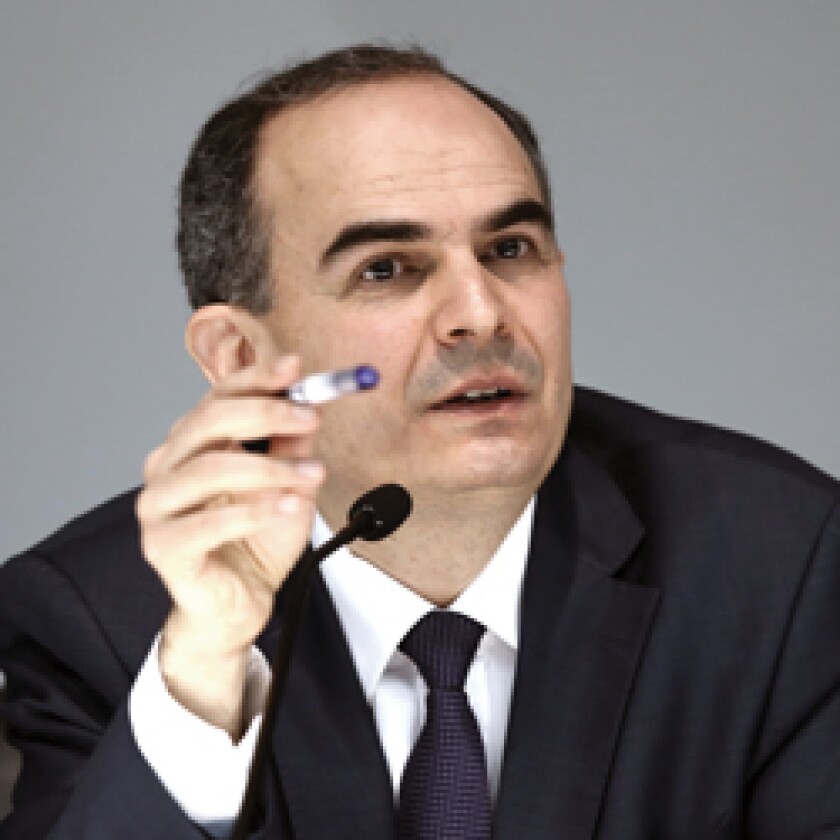It hasn’t been the easiest of years for Turkey or for its under-pressure central bank governor, Erdem Başçı. Last year’s taper tantrum, in the wake of the US Federal Reserve’s warning that it might reduce the scale of its bond buying stimulus programme, shone a harsh spotlight on countries struggling with large fiscal and current account deficits.
Pegged as one of five financially fragile countries deemed overly vulnerable in a world dominated by higher US interest rates, Turkey’s currency, the lira, plunged against the dollar. Economists fretted about slowing growth and stubbornly high inflation.
Yet, notes Charles Robertson, chief global economist at Renaissance Capital, Turkey “managed to get through the taper tantrum without falling to pieces. “Despite facing numerous challenges, the economy remained on track.”
Başçı, economists say, deserves much of the credit for keeping the country on an even keel. Despite coming under mounting political pressure to raise interest rates as 2013 ticked into 2014, Başçı impressed many, including the global investor community, with his willingness to stand up to withering attacks from the likes of president Recep Tayyip Erdoğan and economy minister Nihat Zeybekci.
SURPRISE CUT
In January, Başçı surprised many by raising interest rates by no less than 500bp shortly after the lira hit a record low against the dollar. Pressure to cut rates only rose in a double election year that included local polls in March and presidential elections in August. Yet again, Başçı deftly deflected demands for both a rate cut and a stimulus spree designed to boost short term economic growth. “There was huge pressure to spend more money but Başçı resisted it,” notes RenCap’s Robertson approvingly.
Growth and inflation are key problems for a central bank governor who remains in an invidiously difficult position. Despite expanding by 4.7% year on year in the first three months of the year, GDP growth slipped to 2.1% in the second quarter on tepid domestic demand, which makes up two-thirds of GDP. The official forecast for economic growth this year remains at 4%, though finance minister Mehmet Şimşek warned in September that it may come in as low as 3%.
Inflation, exacerbated by higher food prices, rose to 9.54% in August, close to a two year peak and well over the central bank’s year-end target of 7.6%. The central bank has consistently stated that ensuring long term price stability is fundamental to its credibility; Başçı’s aim of cutting inflation to 5% by end-2015 remains intact, the central bank says.
This creates a quandary. Rising inflation, Capital Economics said in a September 10 research report, made looser policy “unlikely” while adding to political demands for “lower interest rates to support domestic demand”. Yet slower growth — the research house tips economic growth to slip slightly in 2014, to 2.5% — will also intensify pressure on the central bank to cut borrowing costs in order to spur growth rates. It’s hard to overstate the pressure being exerted on a central bank governor now well into the fourth year of a five year term.
A FIGURE OF AUTHORITY
Yet despite a troubling 18 months, Başçı remains a figure of substantial authority and respect both at home and abroad. He has sought to placate both Erdoğan, who has himself suffered a torrid couple of years, and the long term needs of a still fragile economy, largely succeeding, notes Neil Shearing, chief emerging market at Capital Economics, in “resisting political pressure while maintaining solid economic momentum”. Thus the central bank trimmed the overnight lending rate by 75bp in August to 11.25% but kept the rate steady at its next meeting in September, in the face of rising prices and a broader emerging market selloff.
Turkey faces other daunting challenges, including a still-wobbly currency, advances by the Islamic State terrorist group along its border with Syria, one of the largest deficits in the emerging world and the looming threat of higher US interest rates. Capital Economics’ Shearing warns that another menace, a rapidly forming credit bubble, may be added to that list next year, with loans to the country’s private sector having more than quadrupled since 2008.
Yet despite these myriad challenges, Turkey’s economic fundamentals remain surprisingly robust. Despite regional conflict and torpor in the heart of the eurozone, the economy is growing at a healthy rate. Başçı has so far succeeded in staving off unremitting presidential demands for a cut in interest rates, showing more backbone than many of his predecessors.
And he has in recent weeks taken positive steps to eliminate the current account deficit by making bank deposits more attractive to savers. The plan, which should be finalised by November, could include paying local lenders interest on excess reserves, Başçı says, with the stated aim of boosting the national savings rate to 19% by 2018, from 12.6% in 2013, and cutting the current account deficit to zero, another example of the willingness of Turkey’s battle-hardened central bank chief to think outside the box.
